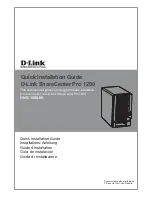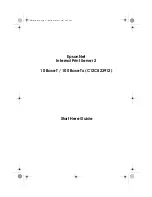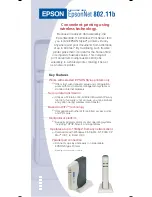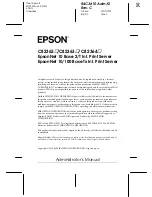
406
IBM z13s Technical Guide
The Hardware messages task displays hardware-related messages at the CPC level, LPAR
level, or SE level. It also displays hardware messages that relate to the HMC itself.
11.5.2 Logical partition management
Use the HMC to define LPAR properties, such as the number of processors of each type, how
many are reserved, or how much memory is assigned to it. These parameters are defined in
LPAR profiles, and are stored on the SE.
Because Processor Resource/Systems Manager (PR/SM) must manage LPAR access to
processors and the initial weights of each partition, weights are used to prioritize partition
access to processors.
You can use the Load task on the HMC to perform an IPL of an operating system. This task
causes a program to be read from a designated device, and starts that program. You can
perform the IPL of the operating system from storage, the HMC DVD-RAM drive, the UFD, or
an FTP server.
When an LPAR is active and an operating system is running in it, you can use the HMC to
dynamically change certain LPAR parameters. The HMC provides an interface to change
partition weights, add logical processors to partitions, and add memory.
LPAR weights can also be changed through a scheduled operation. Use the Customize
Scheduled Operations task to define the weights that are set to LPARs at the scheduled time.
Channel paths can be dynamically configured on and off as needed for each partition from an
HMC.
The Change LPAR Controls task for z13s servers can export the Change LPAR Controls table
data to a comma-separated value (.
csv
)-formatted file. This support is available to a user
when connected to the HMC remotely by a web browser.
Partition capping values can be scheduled and are specified on the Change LPAR Controls
scheduled operation support. Viewing details about an existing Change LPAR Controls
scheduled operation is available on the SE.
Absolute physical HW LPAR capacity setting
Driver 15 introduced the capability to define, in the image profile for shared processors, the
absolute processor capacity that the image is allowed to use (independent of the image
weight or other cappings).
To indicate that the LPAR can use the undedicated processors absolute capping, select
Absolute capping on the Image Profile Processor settings to specify an absolute number of
processors to cap the LPAR’s activity to. The absolute capping value can either be None or a
value for the number of processors (0.01 - 255.0).
LPAR group absolute capping
This is the next step in partition capping options available on z13s and z13 at Driver level 27
servers. Follow on to LPAR absolute capping, using a similar methodology to enforce:
Customer licensing
Non-z/OS partitions where group soft capping is not an option
z/OS partitions where ISV does not support software capping
Summary of Contents for z13s
Page 2: ......
Page 3: ...International Technical Support Organization IBM z13s Technical Guide June 2016 SG24 8294 00 ...
Page 24: ...THIS PAGE INTENTIONALLY LEFT BLANK ...
Page 164: ...136 IBM z13s Technical Guide ...
Page 226: ...198 IBM z13s Technical Guide ...
Page 256: ...228 IBM z13s Technical Guide ...
Page 414: ...386 IBM z13s Technical Guide ...
Page 464: ...436 IBM z13s Technical Guide ...
Page 476: ...448 IBM z13s Technical Guide ...
Page 498: ...470 IBM z13s Technical Guide ...
Page 502: ...474 IBM z13s Technical Guide ...
Page 568: ...540 IBM z13s Technical Guide ...
Page 578: ...550 IBM z13s Technical Guide ...
Page 584: ...556 IBM z13s Technical Guide ...
Page 585: ...ISBN 0738441678 SG24 8294 00 1 0 spine 0 875 1 498 460 788 pages IBM z13s Technical Guide ...
Page 586: ......
Page 587: ......
Page 588: ...ibm com redbooks Printed in U S A Back cover ISBN 0738441678 SG24 8294 00 ...
















































